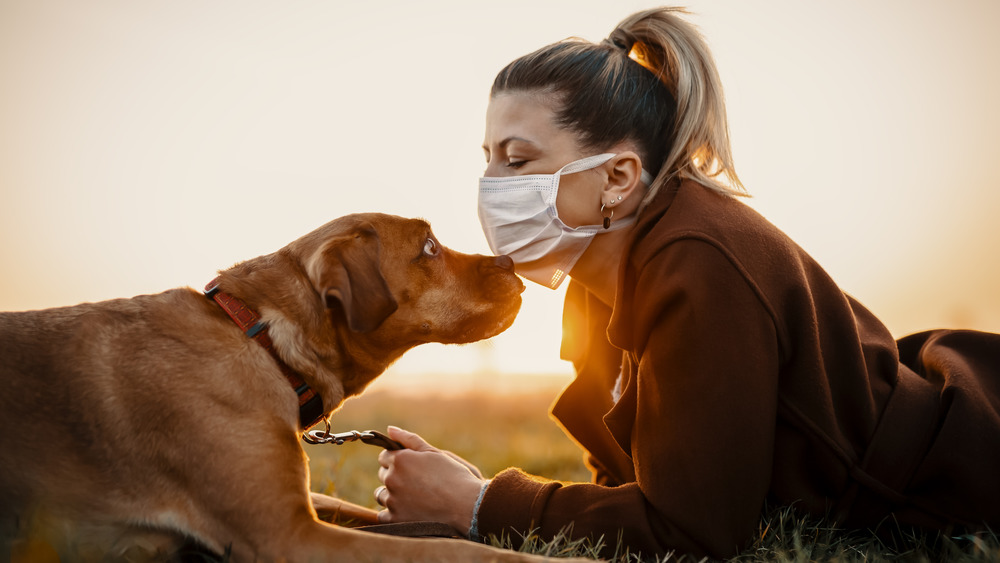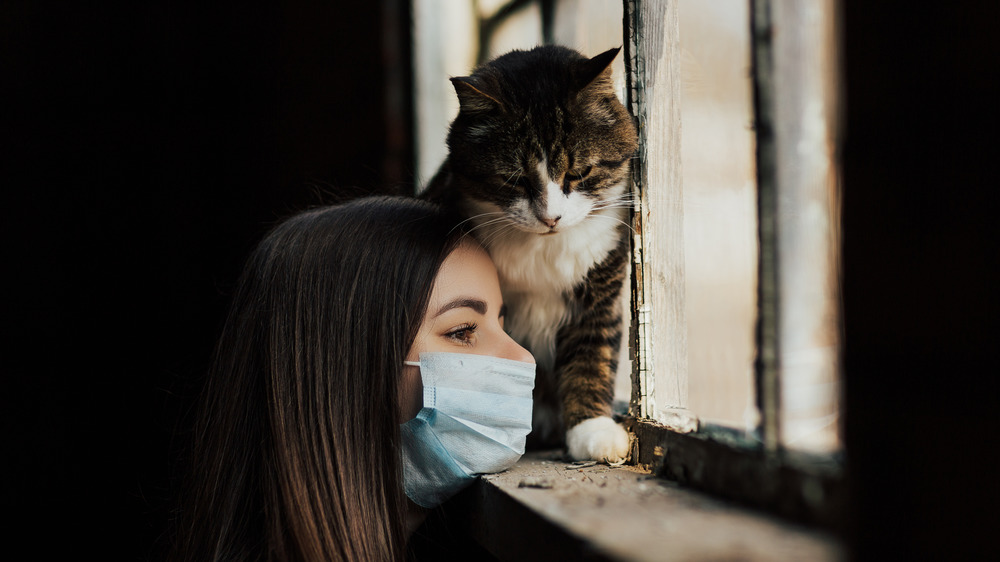The Truth About Caring For Your Pets If You Have COVID-19
Those of us who have fur babies know that pets can be as much of a challenge to care for as young children are. They're famously untalkative — although they can communicate their basic needs fairly efficiently; and they rely on us for just about everything, from food and drink to exercise and rest. So what happens when you get sick with COVID-19 and you're housebound?
While we may feel as though we've been living with the coronavirus forever, we've only been around it for less than a year. Because of this, the CDC would like to remind us that there are plenty of things that we don't know about the "novel coronavirus," including how it might affect our pets.
Even though a small number of pets have reportedly tested positive, it's not known exactly how pets might pick up the coronavirus, or how COVID-19 might manifest itself. Pets on record that have gotten sick with COVID thus far have only had mild symptoms, and have fully recovered, so it may not be something to worry about.
It's important to limit pet interaction if you have COVID-19
Having said that, the CDC reminds us that we're still not entirely sure about the way COVID interacts with animals, so you may be better off treating the pet like a human loved one to protect them from infection. This means that I've you've tested positive, you'll need to limit your interaction with your pet. VCA Hospitals says the best case-scenario would be to have someone else, like another member of your family, take care of your pet. But if you live alone, you'll need to remember to wash your hands before handling your pets, their things, or food and drink bowls. Be sure to cough or sneeze into a tissue or your elbow then wash your hands immediately afterwards (this is where a mask comes in really handy). You shouldn't share food or sleep with your pet either.
Since there is a risk that your pet might spread the virus to other pets, cats should be kept indoors, and not allowed to move freely around outside. Dogs should be kept in a private yard and exercised on a leash. If you don't have a yard, this might be time to invest in an artificial grass tray or pet turf and train your pup to do his or her thing on that, until you're healed and your quarantine period is over.

